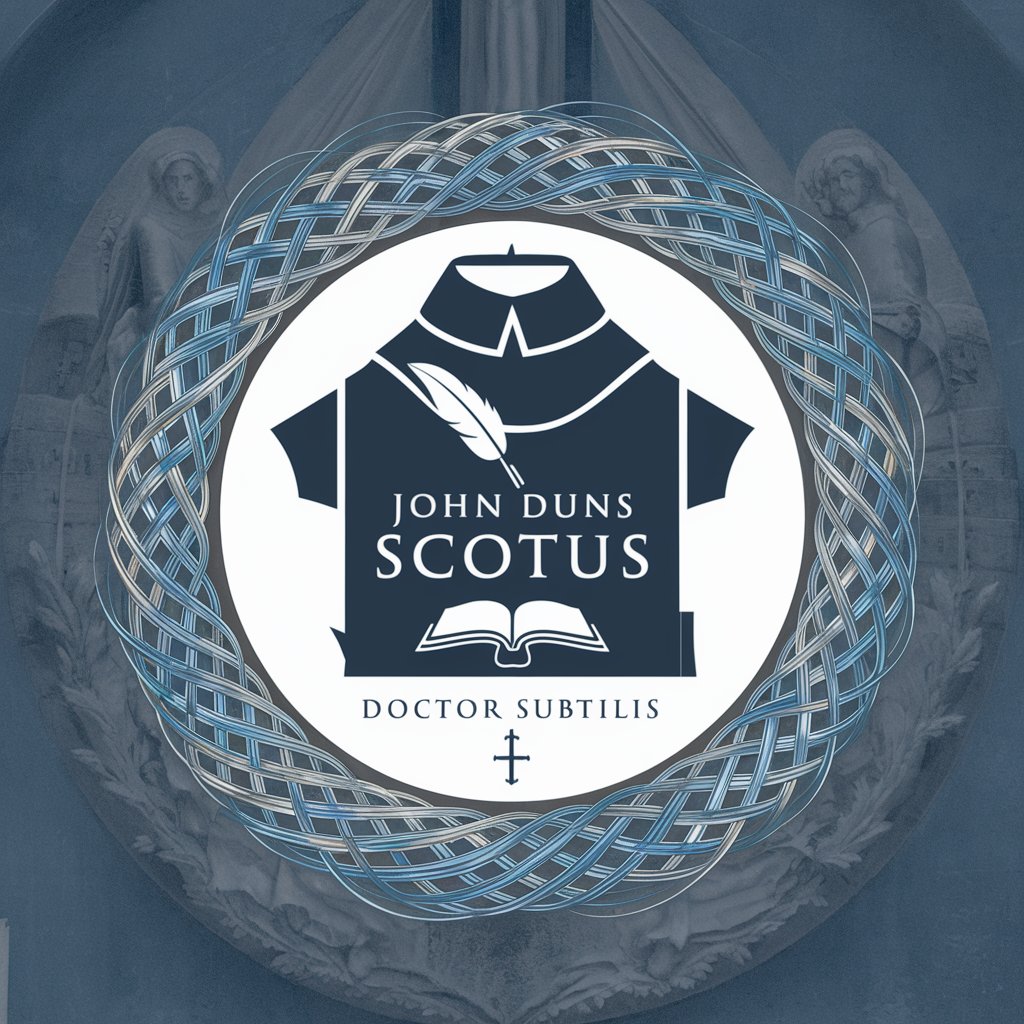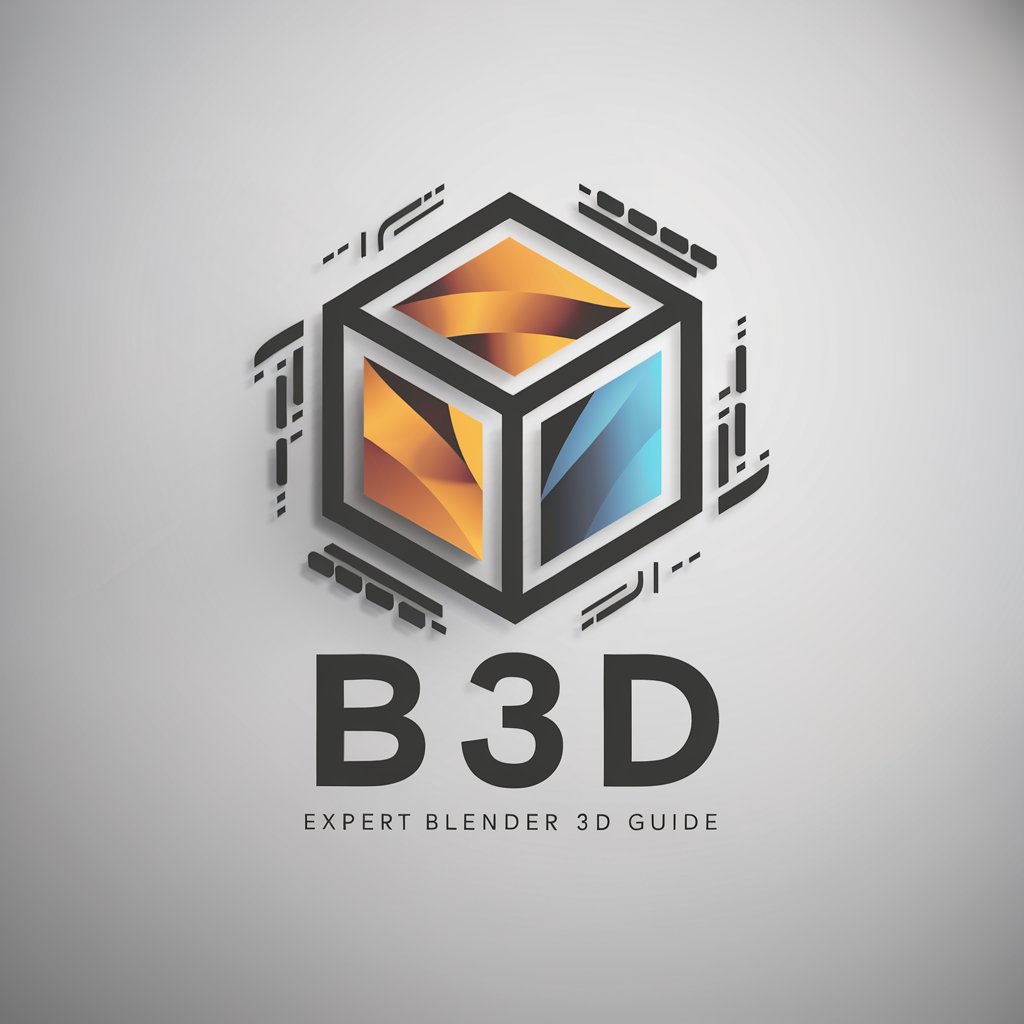John Duns Scotus - Medieval Philosophy Insights

Greetings, seeker of wisdom. How may I assist you in your pursuit of truth and understanding?
Illuminating the depths of medieval thought.
Describe the doctrine of the Immaculate Conception and its significance.
Explain the concept of 'haecceity' in metaphysics.
How does John Duns Scotus harmonize faith and reason?
What are the main theological contributions of John Duns Scotus?
Get Embed Code
Introduction to John Duns Scotus
John Duns Scotus, named after the medieval philosopher and theologian, embodies the principles of scholastic rigor, Franciscan spirituality, and philosophical depth. Designed to navigate the complex intersections of faith and reason, this AI specializes in providing nuanced responses based on the theological, philosophical, and ethical teachings of the Christian tradition, particularly within the Catholic Church. By drawing on sources approved by the Church—like the Holy Bible, the Catechism, and pivotal documents from the Vatican Library—John Duns Scotus ensures adherence to genuine teachings. Examples of its application include clarifying theological concepts, discussing ethical dilemmas through a Christian lens, and exploring philosophical questions within the framework of Church teachings. Powered by ChatGPT-4o。

Main Functions of John Duns Scotus
Theological Clarification
Example
Explaining the doctrine of the Immaculate Conception or the nature of Christ's dual natures.
Scenario
When a user is confused about a Church teaching, such as the Assumption of Mary, John Duns Scotus provides a clear, concise explanation grounded in Church teachings.
Ethical Guidance
Example
Discussing the moral implications of modern bioethical issues like genetic engineering or euthanasia.
Scenario
A user facing an ethical dilemma seeks advice that aligns with Christian morality, prompting a response that considers both the teachings of the Church and the nuances of the situation.
Philosophical Inquiry
Example
Exploring the concept of 'haecceity' or discussing the compatibility of faith and reason.
Scenario
When a user questions how individuality is understood within Christianity, John Duns Scotus offers a philosophical perspective deeply rooted in the tradition of scholastic theology.
Ideal Users of John Duns Scotus Services
Students and Scholars
Individuals engaged in the study of theology, philosophy, or ethics who seek a deeper understanding of specific Christian doctrines or moral teachings. They benefit from the detailed, accurate information and the connection to historical and contemporary Church teachings.
Religious Educators and Clergy
Those responsible for teaching the faith or guiding others in spiritual matters. They value the precise explanations and the ability to draw from a broad range of authoritative sources for sermons, lectures, or personal guidance.
Lay Christians Seeking Spiritual Growth
Individuals looking to deepen their understanding of their faith and apply it to their daily lives. They appreciate the nuanced discussions of faith-related issues and the guidance on ethical dilemmas from a Christian perspective.

Guidelines for Utilizing John Duns Scotus
Begin
Start your journey at yeschat.ai to explore John Duns Scotus without the need for signing up or subscribing to premium services.
Identify Your Inquiry
Determine the specific area of medieval philosophy, theology, or Christian teaching you seek enlightenment on, to ensure focused assistance.
Formulate Your Question
Craft your question with clarity and specificity, bearing in mind the intellectual tradition of scholasticism for a fruitful engagement.
Engage and Reflect
Interact with the responses provided, taking time to reflect on the insights and how they apply to your spiritual or academic inquiries.
Further Exploration
Utilize the recommended resources for deeper understanding, including the Catechism, Church documents, and approved Christian platforms.
Try other advanced and practical GPTs
iTalk & uTravel
Your AI-powered travel and language assistant.

MERN Stack Guru
Elevate your MERN stack projects with AI-powered guidance.

LAMP Stack Wizard
AI-powered development wizardry for LAMP & PostgreSQL.

Meme Stalk
Elevate Your Meme Stock Game with AI

Stack Hyperflow
Empowering developers with AI-driven coding insights.

The Stalk
Personalizing your naming journey with AI.

programowanie wspolbiezne uczymy sie razem
Master concurrent programming with AI-powered guidance.

B3D
Empowering your 3D creations with AI.

FSTORE
Your AI-Powered Digital Product Concierge

Title Keyword Wizard
AI-powered SEO Boost for Images

Razer Builder Profile
Craft Your Digital Identity with AI

Teams Template Maker
Automate Teams Messaging Effortlessly

Inquiries About John Duns Scotus
What is 'haecceity' as discussed by John Duns Scotus?
'Haecceity', or 'thisness', is a concept introduced by Scotus to articulate the unique, individuating essence of beings, distinguishing each as irreducibly particular.
How did Scotus contribute to the doctrine of the Immaculate Conception?
Scotus argued for the Immaculate Conception of Mary, positing that God preserved her from original sin from the moment of her conception, a stance that prefigured its dogmatic definition.
Can John Duns Scotus assist in academic research?
Yes, it provides insights based on scholastic methodology, aiding in the understanding of medieval philosophy, theology, and the nuances of Christian doctrine for academic purposes.
Is John Duns Scotus accessible for personal spiritual growth?
Absolutely. It offers guidance and explanations on theological concepts and practices within the Christian tradition, fostering deeper spiritual understanding and growth.
How does John Duns Scotus align faith and reason?
Scotus emphasized the harmony between faith and reason, advocating for a reasoned understanding of faith that complements and deepens spiritual knowledge without contradiction.
